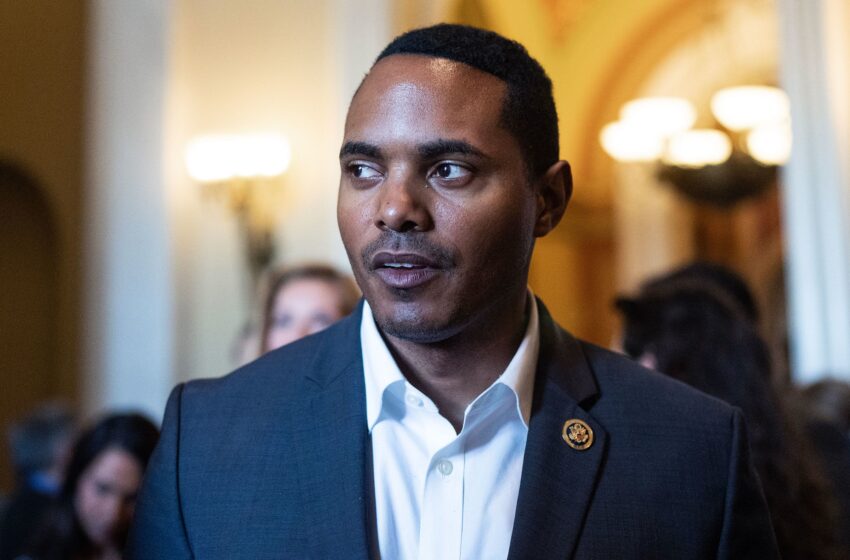Who is Ritchie Torres? What to know about the Bronx Congressman’s controversial impact

Congressman Ritchie Torres of the Bronx. Credit: Williams/CQ-Roll Call, Inc./Getty Images
Representative Ritchie Torres has made a name for himself as a dynamic and outspoken voice in Congress. Born in the Bronx, he rose from public housing to become the first openly gay Afro-Latino in the U.S. House. A progressive on domestic issues and a firm pro-Israel advocate, Torres now faces fresh scrutiny after reports revealed personal investments in defense contractors. Here’s a nuanced look at his background, policy positions, and why he’s drawing attention.
Ritchie John Torres (born March 12, 1988) represents New York’s 15th congressional district, serving since 2021 and previously holding office in the New York City Council (2014–2020). His upbringing in the South Bronx, raised by a single mother in deteriorating public housing, has deeply influenced his policy priorities.
On the City Council, Torres took on predatory taxi medallion lending and exposed inequities in housing policies. He became a steadfast advocate for low-income families, cementing his reputation as a committed public servant.
Breaking Ground as an Openly Gay Afro-Latino Congressman
Torres made history in 2020 when he became the first openly gay Afro-Latino elected to Congress, alongside Mondaire Jones. He was also among the young Democrats who supported Bernie Sanders early on. His leadership extends to LGBTQ+ rights, he co-chaired the Congressional LGBTQ+ Equality Caucus, and he remains a visible symbol of representation in Washington.
Strong Pro-Israel Stance and Political Backlash
A vocal supporter of Israel, Torres has consistently opposed calls for a ceasefire in Gaza, framing them as siding with Hamas, and criticized allegations of genocide as “blood libel.” He voted in favor of the $17 billion weapons package to Israel. His stances, especially during high-profile debates over foreign aid and the ICC, have set him apart in the Democratic Party.
His bold positions have sparked criticism from progressive and pro-Palestinian activists. In fact, he quietly exited the Congressional Progressive Caucus following disagreements over Israel policy.
READ ALSO
George Soros Racketeering claim: Why Trump wants to charge him under RICO
FDA restricts COVID Vaccine access: What you need to know
Defense Stocks Controversy Raises Ethical Questions
A recent report by Sludge revealed that Torres invested in defense contractors, Lockheed Martin, Northrop Grumman, and L3Harris, at the same time he was pushing for accelerated arms shipments to Israel. These disclosures were filed nearly a year late, violating standards under the STOCK Act.
His office clarified that the trades were made by an independent manager and that Torres will no longer purchase individual corporate stocks. Nonetheless, the optics have drawn ethical concerns and calls, including from CAIR-NY, for transparency or donations of any potential profits.
Navigating Tensions Inside the Democratic Party
Torres’s centrist-to-center-left position, especially in regard to Israel, has prompted tensions within the Democratic ranks. His public rebuke of the Democratic Socialists of America, and his praise for candidates focused on affordability (rather than foreign policy), highlight his pragmatic approach . Still, he acknowledged that affordability and housing crises resonate strongly with his constituents.
There are also whispers within progressive circles about potential primary challenges in 2026, though Torres remains firmly rooted in his South Bronx base.
A Complicated but Impactful Legacy
Ritchie Torres continues to shape political debate, whether through housing reform, LGBTQ+ advocacy, or hardline foreign policy. His personal story and policy positions make him a complex figure at the intersection of identity, ideology, and power. The recent controversy over defense stock investments adds a new chapter to his evolving public image, reminding voters how scrutiny often accompanies ambition.

